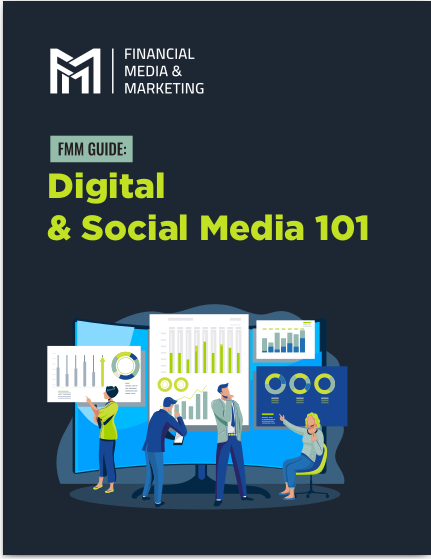Key Takeaways
-
To thrive as a financial advisor, mastering client engagement across multiple platforms can establish your authority and expand your reach.
-
By leveraging actionable strategies, you can effectively transform your expertise into lasting visibility and trust with potential leads.
Start Strong: Building Your Digital Foundation
The journey to becoming an influential financial advisor starts with a solid digital presence. Today, clients aren’t just looking for expertise—they want an advisor they can trust, someone who understands their unique needs. Building this foundation requires a combination of authenticity and strategy.
Craft Your Online Persona
Your professional website and social media profiles are your first impression. These platforms should reflect your expertise, values, and approach to financial advising. Ensure that:
-
Your biography highlights your credentials and experience.
-
Clear, professional photos enhance your credibility.
-
You’re consistent in your tone and message across platforms.
Optimize for Discovery
If potential clients can’t find you, they can’t engage with you. Optimize your online presence by:
-
Using keywords your clients are likely to search for.
-
Keeping your profiles updated with relevant, timely information.
-
Encouraging satisfied clients to leave reviews—they’re powerful trust signals.
Engage Authentically: Speak to Your Audience
Gone are the days of one-size-fits-all messaging. To truly connect, you need to address your audience’s pain points and aspirations.
Understand Your Client’s Needs
Take time to research your target demographic. Whether you’re advising young professionals, retirees, or business owners, your messaging should reflect their goals and concerns. For instance:
-
Highlight retirement planning strategies for older clients.
-
Discuss wealth-building options for younger audiences.
Create Meaningful Content
Engagement doesn’t just happen—you need to inspire it. Offer valuable insights through blogs, videos, or newsletters. Content ideas include:
-
Breaking down complex financial topics into easy-to-understand pieces.
-
Sharing tips on avoiding common investment pitfalls.
-
Providing updates on market trends that could affect your clients.
Leverage Social Media: The Modern Word of Mouth
Social media is a powerful tool for financial advisors when used strategically. It’s not about being everywhere but about being effective where it matters.
Choose Your Platforms Wisely
Different platforms cater to different audiences. For instance:
-
LinkedIn is ideal for networking and professional engagement.
-
Instagram and Facebook can help you connect on a more personal level.
Be Consistent
Post regularly to stay top of mind. Consistency shows your audience that you’re active and reliable. Develop a schedule for posting:
-
Weekly updates or advice posts.
-
Monthly Q&A sessions.
-
Timely responses to messages or comments.
Strengthen Relationships: From Leads to Loyalty
Engaging leads is just the beginning; turning them into loyal clients requires genuine connection and thoughtful follow-ups.
Personalize Your Approach
Generic emails and templated messages won’t cut it. Show clients that you value them by:
-
Using their names and referencing past conversations.
-
Tailoring advice to their specific financial situations.
Stay Connected
Follow-ups are crucial in maintaining strong relationships. Use email campaigns or CRM tools to:
-
Send reminders about financial milestones (e.g., tax deadlines).
-
Provide regular updates on portfolio performance or market shifts.
-
Share tailored content that aligns with their goals.
Diversify Communication Channels
Clients interact with information in different ways. Offering multiple channels of communication increases your chances of engaging them effectively.
Utilize Email Campaigns
Email remains one of the most effective tools for client engagement. Ensure your campaigns are:
-
Informative but concise.
-
Timed appropriately to avoid overwhelming recipients.
-
Segmented by audience type (e.g., retirees, entrepreneurs).
Explore Video Content
Videos allow you to connect on a more personal level. Consider creating:
-
Short explainer videos on financial concepts.
-
Webinars addressing pressing financial topics.
-
Live sessions where clients can ask questions.
Build Trust Through Transparency
Trust is the cornerstone of any successful advisor-client relationship. Transparency not only establishes credibility but also fosters long-term loyalty.
Be Honest and Clear
Avoid jargon when explaining strategies or recommendations. Clients appreciate:
-
Simple, straightforward communication.
-
Full disclosure of fees or potential risks.
Showcase Client Success Stories
While maintaining confidentiality, you can highlight general success stories to build trust. For example:
-
“Many of my clients have improved their retirement savings using these strategies.”
Embrace Technology to Streamline Processes
Technology can significantly enhance your efficiency, allowing you to focus more on building relationships.
Automate Repetitive Tasks
Use tools to:
-
Schedule social media posts.
-
Send automated reminders or follow-ups.
-
Manage client appointments.
Track and Analyze Data
Analytics can help you understand what works and what doesn’t. Pay attention to:
-
Email open rates and click-through rates.
-
Social media engagement metrics.
-
Website traffic and visitor behavior.
Measure and Adjust Your Strategies
Success doesn’t happen overnight. Regularly reviewing your strategies ensures you stay on track.
Set Clear Goals
Define measurable objectives such as:
-
Increasing your client base by a specific percentage.
-
Boosting engagement rates on social media.
-
Generating a certain number of leads per month.
Reflect and Refine
Evaluate your performance every quarter. Ask yourself:
-
Which strategies brought the most engagement?
-
What feedback have clients provided?
-
Where can you improve?
Elevate Your Expertise and Influence
Becoming a go-to financial advisor requires more than just knowledge; it’s about how you present and share that knowledge. By engaging effectively across platforms, you can:
-
Establish yourself as an industry authority.
-
Build lasting relationships with clients.
-
Achieve sustainable growth for your practice.










